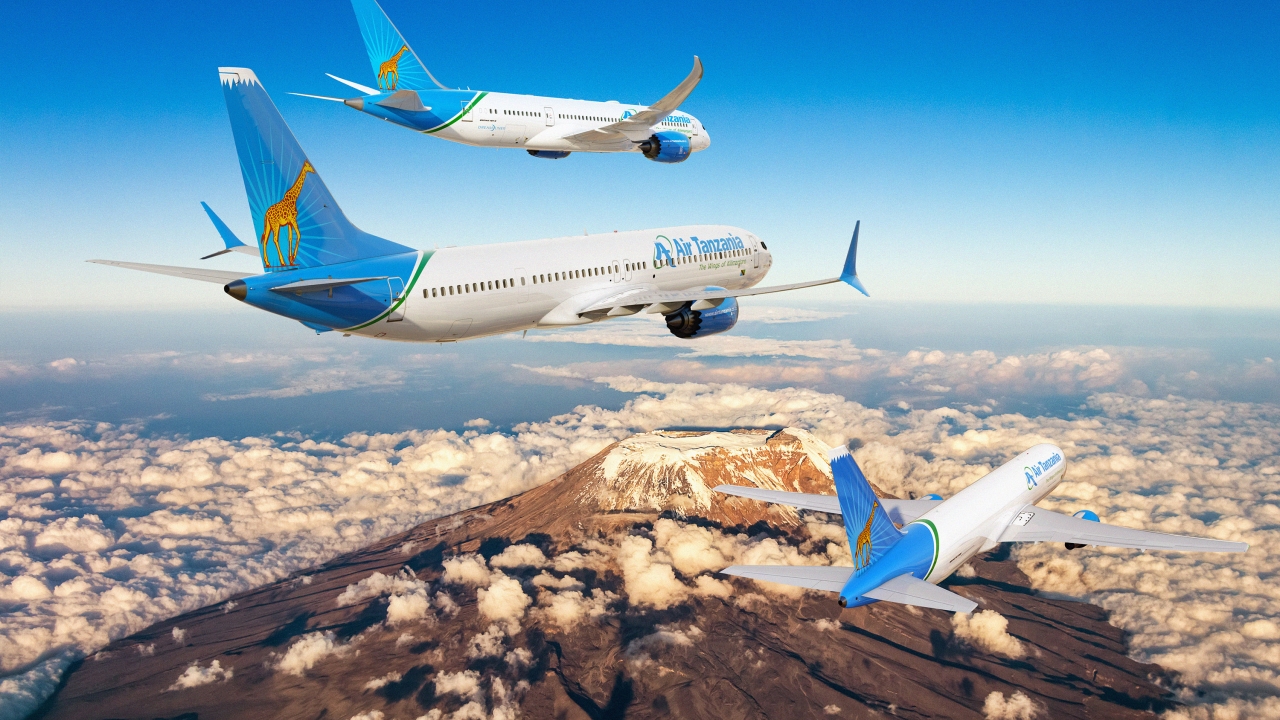Uganda flies the flag again
Uganda is rejoining the club of countries with national airlines as it seeks to recapture some of the revenue currently being taken by foreign carriers. Alan Dron reports.

Nature, they say, abhors a vacuum. So does commerce. Which is why foreign carriers flood into countries with no national airline, eager to pick up passengers that they know require air transportation services.
That is the case in Uganda, where it is estimated that some $540 million a year ends up in the form of higher transport costs to passengers originating and terminating at Entebbe International Airport with non-Ugandan airlines.
Major African carriers, such as Kenya Airways and Ethiopian, have made inroads into the Ugandan market in recent years, as have the big Gulf carriers, such as Etihad Airways, Emirates Airline and Qatar Airways, plus Turkish Airlines, which has publicly said it aims to be the largest carrier on the African continent.
That is one of the reasons for the east African nation’s decision to re-establish a national airline, four years after privately owned Air Uganda collapsed. The original state-owned Uganda Airlines was closed by the government in 2001.
“There’s competition, but we intend to join the game and compete,” said Ephraim Bagenda, CEO of the newly-revived Uganda Airlines. “We cannot just sit back and say ‘There’s too much competition, we can’t do anything.’ We will offer what we think will be a superior product.”
A 2015 feasibility study by the Ugandan National Planning Agency (NPA) found that a new national carrier would “play a critical catalytic role in tourism development and promotion, export growth and investment in various priority sectors”.
The NPA study noted the considerable economic benefits of having a Ugandan carrier to compete with foreign rivals: “Before 2007, Uganda did not have any locally based carriers and Kenya Airways was charging an average of $420 for the Entebbe-Nairobi route. After Air Uganda started operations in 2007, prices went down to as low as $182 and averaged about $150 by the time of closure in 2014.
“When Air Uganda was closed, prices immediately shot up, averaging about $500-$700. RwandAir is charging average ticket prices of $330 economy for the same route. As a result, it is important to establish a local-based carrier to reduce the cost of air travel.”
The study also recommended that an investment in a new national airline “should be considered as an infrastructure for enhancing the country’s global connectivity and competitiveness, beyond the direct financial benefits”.
The new Uganda Airlines came to widespread public attention at last year’s Farnborough International Airshow in the UK, when it placed firm orders for four Bombardier CRJ900s and signed a memorandum of understanding for two Airbus A330-800neos.
Uganda Airlines will operate the slow-selling A330-800 – the only other buyer on Airbus’ orderbooks for the type is Kuwait Airways – with a three-class cabin comprising 20 business, 28 premium economy and 213 economy seats, while the CRJ900 will have a dual-class configuration with 76 seats, including 12 first-class.
“We hope to take delivery of the first aircraft, a CRJ900, in February 2019,” said Bagenda. “If all goes well, we will go on a marketing tour around Africa in conjunction with Bombardier. That will take six weeks while awaiting the arrival of the second aircraft, which will arrive towards the end of March.”
At that point, Uganda Airlines will launch regional services in a network that will eventually grow to 18 destinations, including Nairobi, Kigali, Lusaka and Kinshasha.
Bagenda said the decision to opt for the A330-800 had been taken after a considerable amount of research: “It’s just big enough for our kind of traffic.” Rival aircraft were also considerably more expensive.
The fact that few other airlines had chosen the -800 variant was taken into consideration, but he and the Uganda Airlines team believe that more will follow.
Bagenda hopes initial destinations for the long-haul aircraft will include Guangzhou, London, Mumbai and points in west Africa.
“We look forward to providing the most modern passenger experience in regional aviation to the people of Uganda and across Africa,” said Bagenda.
The airline will initially be state-owned, although government ministers have spoken of selling shares in the company once it is up-and-running.
Stay up to date
Subscribe to the free Times Aerospace newsletter and receive the latest content every week. We'll never share your email address.

